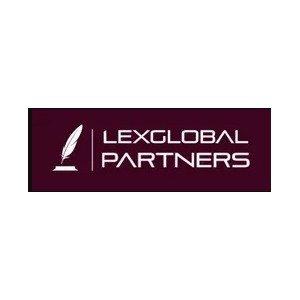Best Licensing Lawyers in Afghanistan
Share your needs with us, get contacted by law firms.
Free. Takes 2 min.
Or refine your search by selecting a city:
List of the best lawyers in Afghanistan
About Licensing Law in Afghanistan
Licensing law in Afghanistan governs the processes and regulations related to obtaining permits and licenses for various business, trade, and professional activities. The aim is to ensure that entities and individuals comply with national and regional standards, promote fair competition, protect consumers, and enhance the country's overall economic development. Licensing can cover a wide range of areas such as trade, intellectual property, telecommunications, and more.
Why You May Need a Lawyer
Engaging a lawyer can be critical in navigating Afghanistan's licensing landscape due to its complexity and the ever-evolving nature of laws and regulations. Legal counsel may help you:
- Understand which specific licenses or permits you need for your business or profession.
- Assist with the application process to ensure compliance with relevant laws and regulations.
- Represent you in case of disputes related to the granting, renewing, or revocation of licenses.
- Provide guidance in dealing with government bodies and regulatory authorities.
- Help with the interpretation of local laws and their implications on your business operations.
Local Laws Overview
The key aspects of Afghan licensing laws include requirements specific to different sectors such as trade, construction, and telecommunications. Businesses must adhere to regulations that pertain to their particular industry, which may involve acquiring multiple permits from various government departments. The Afghan government often updates these regulations to align with new policies or international standards, which underscores the importance of staying informed and seeking legal advice when necessary.
Frequently Asked Questions
What is a business license, and why do I need one?
A business license is a permit issued by a government agency that allows you to legally operate your business within jurisdiction. It ensures that your business meets local regulatory requirements.
How can I determine which licenses I need?
The necessary licenses depend on the nature of your business and the location. Consulting with a lawyer or a local business advisory service can provide clarity.
What is the procedure to apply for a license in Afghanistan?
Typically, you need to submit an application to the appropriate government department, along with required documents and fees. The exact process may vary depending on the type of license.
How long does it take to obtain a license?
The timeline can vary widely based on the type of license, the department's processing time, and whether additional inspections or approvals are required.
Can a license be transferred to another person or entity?
Generally, licenses are not transferable as they are issued based on specific qualifications or requirements that may not apply to others.
What should I do if my license application is denied?
You can request details on why the application was denied and may be able to appeal the decision or reapply after addressing the issues noted by the authorities.
Are there fees associated with obtaining licenses?
Yes, there are usually fees involved in the process of applying for and renewing licenses.
What happens if I operate without a required license?
Operating without the necessary license can result in fines, legal action, and the closure of your business.
How often do I need to renew my license?
This depends on the specific type of license and industry regulations. Some licenses require annual renewal, while others might be longer.
Where can I get legal help for license issues?
You can consult with a lawyer specializing in business law or seek assistance from a local chamber of commerce or industry association.
Additional Resources
For more information on licensing in Afghanistan, you may consider contacting:
- Ministry of Industry and Commerce of Afghanistan
- Afghan Chamber of Commerce and Industry
- Provincial business advisory services
- Local bureaus of regulatory compliance
Next Steps
If you need legal assistance in licensing, consider the following steps:
- Determine the specific type of legal advice or service you require based on your industry and current needs.
- Research local attorneys or legal firms specializing in business and licensing law in Afghanistan.
- Prepare necessary documents and details about your situation before your consultation.
- Schedule one or more initial consultations to discuss your needs and explore legal strategies.
- Engage a lawyer who has the expertise, communication style, and fees that best match your needs.
Lawzana helps you find the best lawyers and law firms in Afghanistan through a curated and pre-screened list of qualified legal professionals. Our platform offers rankings and detailed profiles of attorneys and law firms, allowing you to compare based on practice areas, including Licensing, experience, and client feedback.
Each profile includes a description of the firm's areas of practice, client reviews, team members and partners, year of establishment, spoken languages, office locations, contact information, social media presence, and any published articles or resources. Most firms on our platform speak English and are experienced in both local and international legal matters.
Get a quote from top-rated law firms in Afghanistan — quickly, securely, and without unnecessary hassle.
Disclaimer:
The information provided on this page is for general informational purposes only and does not constitute legal advice. While we strive to ensure the accuracy and relevance of the content, legal information may change over time, and interpretations of the law can vary. You should always consult with a qualified legal professional for advice specific to your situation.
We disclaim all liability for actions taken or not taken based on the content of this page. If you believe any information is incorrect or outdated, please contact us, and we will review and update it where appropriate.
Browse licensing law firms by city in Afghanistan
Refine your search by selecting a city.









